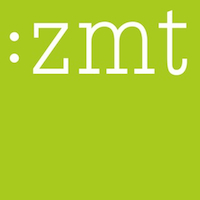| Pages in topic: < [1 2 3] > | Can one language be better than another? Thread poster: Wendy Cummings
|
|---|
bdoc
English to Hungarian
| indoeuropean vs. asian | May 18, 2003 |
if anyone is aware of structural differences between languages I\'d read about that (less known languages)
[ This Message was edited by: bdoc on 2003-05-19 09:25]
| | | | Palko Agi 
Local time: 01:31
English to Hungarian
+ ...
| Sorry, bdoc, | May 20, 2003 |
but I have to correct you. 44 letters in Hungarian alphabet, yes, but 39 sounds. See MHSZ point 10.
| | | | bdoc
English to Hungarian
q w x y j-ly
anyway I guess it\'s world record 
maybe not
| | | | | 10 million words? | May 29, 2003 |
Are you absolutely sure about that? I'd say that all words in all European languages wouldn't add up to that figure.
Dear Matt
Innuit if you want to describe snow
Turkish if you want to describe the degree of relationship (I still learn them and try hard not to forget)and colours (we have lots of colourful words for them ) ) ) )
bdoc wrote:
these languages are all indo-europeans (except Arabic)
probably English has the most words approx. 10 million
for me it sounds kinda synthetic but I like it though
asian languages apply different approach (I deduce it from Hungarian 'cause that's what I speak)
they are more fluid-like: no fixed word order
'inherent linguistic characteristics'
H. has 44 letters = 44 sounds
| | |
|
|
|
Mario Marcolin 
Sweden
Local time: 01:31
Member (2003)
English to Swedish
+ ...
SimplyMe wrote:
...German IS very precise - but awfully difficult to learn. From 100 german-speaking people there\'s just one or two who master this language. NO MORE.
German\'s very, very versatile - and ideal for poems or quite complex descriptions.
..
You should try Lithuanian:it's worth the effort!
| | | | | No language is better than the other | Jun 5, 2024 |
I strongly believe that all spoken languages are equal to some degree. It is just a means to communicate with one another regardless of the language. Although I will say that when it comes to writing, based off of my experience, writing in Japanese or Chinese takes more time because it is a slower process due to all of the different brushstrokes that is required for certain Kanji. Whereas the Roman numerals script that is being used when writing in English is much easier and quicker to do. Which... See more I strongly believe that all spoken languages are equal to some degree. It is just a means to communicate with one another regardless of the language. Although I will say that when it comes to writing, based off of my experience, writing in Japanese or Chinese takes more time because it is a slower process due to all of the different brushstrokes that is required for certain Kanji. Whereas the Roman numerals script that is being used when writing in English is much easier and quicker to do. Which saves much more time to communicate when it comes to writing. ▲ Collapse
| | | | Zea_Mays 
Italy
Local time: 01:31
English to German
+ ...
Great to see ProZ getting so many new users, all popping up together at the same time.
| | | | Barbara Carrara 
Italy
Local time: 01:31
Member (2008)
English to Italian
+ ...
| We needed this | Jun 5, 2024 |
Zea_Mays wrote:
Great to see ProZ getting so many new users, all popping up together at the same time.
Yes, and contributions bringing such invaluable insight to the topics at hand, and so deserving of our attention, as is this one, coming just twenty-one plus years after the original thread was started.
A motivational speaker's view was definitely needed, at this point. And now we have it. Happy days!
Very much looking forward to my membership expiration date.
| | |
|
|
|
I was going to say the language of love, which as a former gigolo I obviously mastered long ago, but I worried it wouldn’t qualify as insightful enough to boost member numbers so instead I’m going to say music.
| | | | | Words for the second person | Jun 5, 2024 |
Is there a language that successfully always distinguishes between a singular and plural second person? If so, I vote for that one*.
I don't count stuff like French tu/vous, where the plural is also a singular polite form.
Hardly a day goes by, it seems, where I don't have to explicitly state which kind of "you" I mean. Seems odd this shortcoming has persisted.
* Having said that, if it also has grammatical gender, I won't vote for it after all. Any contend... See more Is there a language that successfully always distinguishes between a singular and plural second person? If so, I vote for that one*.
I don't count stuff like French tu/vous, where the plural is also a singular polite form.
Hardly a day goes by, it seems, where I don't have to explicitly state which kind of "you" I mean. Seems odd this shortcoming has persisted.
* Having said that, if it also has grammatical gender, I won't vote for it after all. Any contender for "best" language surely won't have such a pointless feature ▲ Collapse
| | | | Daryo
United Kingdom
Local time: 00:31
Serbian to English
+ ...
| Better or worse in itself means nothing | Sep 8, 2024 |
Better or worse can mean anything only in relation to some defined "goal" that has to be achieved.
Or in relation to some "value system" - i.e. what you value more: concision? precision? flexibility in creating new words? the number of specialized fields where it can be used? The ease of learning it to a usable basic level? The geographical extent of where you can use the language? etc etc
Whichever way you want to define better/worse languages, languages are definit... See more Better or worse can mean anything only in relation to some defined "goal" that has to be achieved.
Or in relation to some "value system" - i.e. what you value more: concision? precision? flexibility in creating new words? the number of specialized fields where it can be used? The ease of learning it to a usable basic level? The geographical extent of where you can use the language? etc etc
Whichever way you want to define better/worse languages, languages are definitely NOT "all equal". Some will always be better adapted than others for some specific purpose.
[Edited at 2024-09-08 21:48 GMT] ▲ Collapse
| | | | Kay Denney 
France
Local time: 01:31
French to English
First off, the boyfriend's argument about speed is ridiculous. Whatever language you speak, a shriek pointing at a source of danger usually does the job perfectly well. Whether you're shrieking "watch out" or "Attention !" or even "Gobbledy gook" the person will react appropriately.
And "better" can only ever be purely subjective. I would say that the best language is French, because I fell in love with it as an impressionable young teenager, being taught by a wondrous witch (we ne... See more First off, the boyfriend's argument about speed is ridiculous. Whatever language you speak, a shriek pointing at a source of danger usually does the job perfectly well. Whether you're shrieking "watch out" or "Attention !" or even "Gobbledy gook" the person will react appropriately.
And "better" can only ever be purely subjective. I would say that the best language is French, because I fell in love with it as an impressionable young teenager, being taught by a wondrous witch (we never quite caught sight of her broomstick but she certainly didn't walk into that classroom!) and getting top marks without even trying. The poetry and literature we studied seemed so much more poetic and literary than what we were studying in English. I rediscovered a book I studied at school recently - I hadn't handed the book back in at the end of the year because I couldn't bring myself to part with it! - and saw the very great limits of my understanding in the notes I had scribbled in the margins. Rereading it, I fell in love with the novel all over again, but with depths and layers of understanding I couldn't even have dreamed of before as a schoolgirl with no experience of life or love or indeed anything.
I find English so much more prosaic, so it's a huge challenge for me to make my translations as beautiful as the source texts. My favourite client, an artist, told me she loved my translations and thought they sounded so much better in English, but I think that's because English is seen as cool, not because it's beautiful. ▲ Collapse
| | |
|
|
|
Kay Denney 
France
Local time: 01:31
French to English
As for languages I don't even understand, there are some that are so beautiful I could fall in love with a native speaker just listening to them explaining where they put the loo brush.
| | | | Michele Fauble 
United States
Local time: 17:31
Norwegian to English
+ ...
| Norwegian second person | Sep 9, 2024 |
Charlie Bavington wrote:
Is there a language that successfully always distinguishes between a singular and plural second person?
Norwegian does. ‘Du’ (singular, subject), ‘deg’ (singular, object) and ‘dere’ (plural, subject and object).
There is/was a polite second person ‘De’ (singular, subject), ‘Dem’ (singular, object), identical to the third person plural, but it has fallen out of use.
[Edited at 2024-09-09 17:12 GMT]
| | | | | English has interesting ways of doing poetry | Sep 9, 2024 |
It's very different from Russian in this regard (I may have mentioned it elsewhere). The rhyming patterns, syllable counts, etc. all function differently. Since there have been great minds who tried to translate Russian poetry while sticking as closely as possible to the original forms, I've had quite a number of opportunities to study those translations (the most recent such read being The Fountain of Bakhchisaray by Pushkin). I'm confident that each of them took great talent and effort ... See more It's very different from Russian in this regard (I may have mentioned it elsewhere). The rhyming patterns, syllable counts, etc. all function differently. Since there have been great minds who tried to translate Russian poetry while sticking as closely as possible to the original forms, I've had quite a number of opportunities to study those translations (the most recent such read being The Fountain of Bakhchisaray by Pushkin). I'm confident that each of them took great talent and effort to produce, but the English text had to be stretched and twisted in many spots where Pushkin's language came as an intense but completely effortless poetic flow (fun fact: that translation had many ways of saying that Zarema was Georgian without ever using this word). Which is kind of why Nabokov said he'd never translate anything by Pushkin in verse. He produced one in prose but while some people said his translation was insightful, I found it boring and stopped reading.
When Russian poets translated poems from English, they'd often polish things up, because really: when you're reading, e. g. some nursery rhymes assuming that the patterns that were there from the very beginning will continue until the end, well, may be in for a disappointment because things might as well break down for a couple of lines before the patterns resume. I think this is considered normal in English poetry. "Ihr naht euch wieder, schwankende Gestalten..." is beautiful, and while some Goethe admirers say that Pasternak ruined Faust (and Hamlet— according to some fans of Shakespeare), Pasternak's language sounds just as convincing and contains fewer consonants than German (which was what Fabre d'Olivet had against this language as he wrote in his foreword to Les vers dorés de Pythagore—of course, he preferred French). I love Tsvetaeva's translation of Le Voyage by Baudelaire. I love The Iliad by Gnedich and believe it can confidently compete for the title of the best rendering of The Iliad in a foreign language (I may be wrong because there's no way I could read a number of translations sufficient to make a qualified judgment).
And as I've definitely mentioned elswhere, I don't believe English can't talk convincingly about religion. Out of all the English Bible versions I've read, I prefer King Jame's. But after all, if you want to get the best reading experience and you don't know Greek (or Hebrew, or Aramaic) but do know Russian, you should read it in Church Slavonic because it does a wonderful job communicating what was written in Greek. And it comes as a bonus for all educated speakers of Russian: even if you've never learned it, it will teach itself to you as you read more and more of it. I know, many here are not interested in these things. I could write about a lot of things English handles better than Russian, but that would make another long post and this one is long enough already
[Редактировалось 2024-09-09 19:19 GMT] ▲ Collapse
| | | | | Pages in topic: < [1 2 3] > | To report site rules violations or get help, contact a site moderator: You can also contact site staff by submitting a support request » Can one language be better than another? | Trados Business Manager Lite | Create customer quotes and invoices from within Trados Studio
Trados Business Manager Lite helps to simplify and speed up some of the daily tasks, such as invoicing and reporting, associated with running your freelance translation business.
More info » |
| | Trados Studio 2022 Freelance | The leading translation software used by over 270,000 translators.
Designed with your feedback in mind, Trados Studio 2022 delivers an unrivalled, powerful desktop
and cloud solution, empowering you to work in the most efficient and cost-effective way.
More info » |
|
| | | | X Sign in to your ProZ.com account... | | | | | |




















